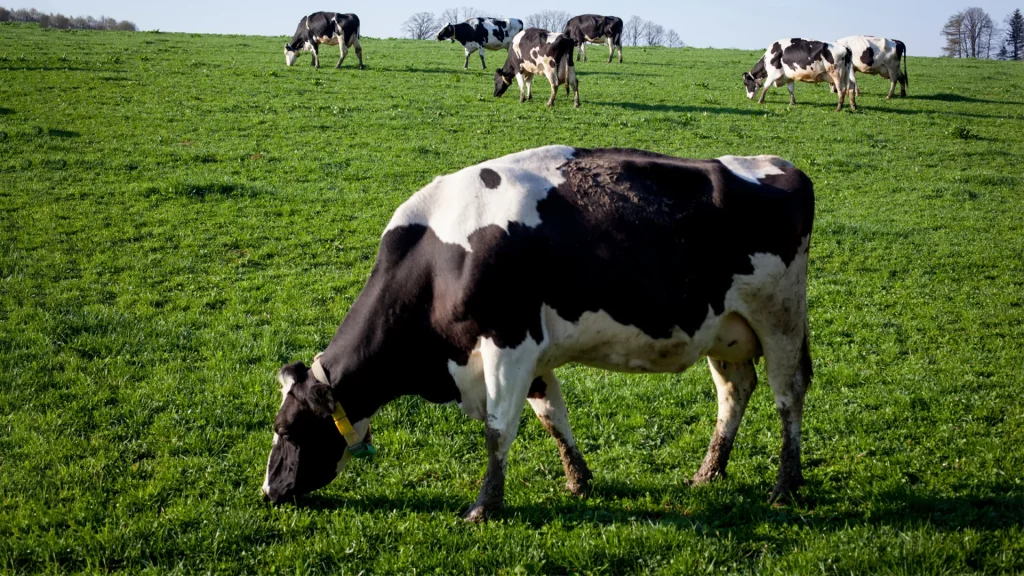Home » Why Choose Temporary Fence for Your Livestock?

When most farm owners think about their livestock, they picture something durable & permanent, strong wires, heavy posts, and a setup that lasts for decades.
However, sometimes ‘permanent’ is not the right choice for your livestock. You want something temporary but durable. Whether you are rotating pastures, managing seasonal grazing, or simply need quick containment solutions for your goats and sheep, temporary fencing can be the answer to your animals’ needs.
So let’s dive in and learn why it’s worth considering and how it can be the smartest choice for your animals.
Temporary fencing is a portable fence system that is easy to move and take down. This type of fence is made from different materials depending on the animals you are managing and the overall conditions of your land. Electric polywire, lightweight welded wire panels, and portable mesh netting are some common types of temporary fencing.
Permanent fencing is fixed in its place. But temporary fencing offers a lot of solutions regarding livestock management.
Some key reasons to choose temporary fence solutions are:
You’re still deciding on your final pasture layout.
You May Also Like : Woven Wire Vs. Welded Wire – What’s the Difference, and Which One is Best for Your Livestock?
If you are confused whether to choose permanent fencing or temporary fencing, have a look at some major benefits first:
Temporary fence systems are easy to install and can be set up without using heavy tools and equipment. They are ideal for quick fixes or short-term use. That’s why it’s also called removable fencing. Plus, it’s great for emergencies.
Temporary fencing is quite cost-effective solution than permanent fencing. Because you will only pay for what you need and when you need it. Moreover, there is no costly excavation or heavy-duty posts required for installation.
Temporary fencing is also called portable fencing. You can move the fence to new areas as needed. This means it can work for multiple projects over the years. It is also perfect for seasonal livestock relocation.
With temporary fencing, livestock owners can control grazing patterns and protect pasture health. Animals get fresh forage more often. Moreover, it reduces overgrazing and improves long-term land productivity.
Temporary fencing allows you to move animals during breeding season. You can separate livestock during medical treatments as well as protect certain crops or pasture areas temporarily.
There are four significant types of temporary fencing:
This type of fencing consists of some lightweight strands that are made from polyethylene with metal filaments for conductivity. It is easy to spool and unspool for quick setup, and it works well for cattle and trained animals.
Portable temporary fencing features a mesh-like design with built-in posts. It is electrified for security and predator deterrence and considered best for sheep, goats, and poultry. Plus, it keeps out smaller predators better than single-strand wire.
In this fencing type, there are pre-made rigid sections that connect. It requires no electricity and works for small enclosures or temporary pens. This fencing is heavy enough to contain animals without deep post installation.
This fencing type contains steel or aluminum frames that can be locked together. It is great for corral setups, loading areas, or short-term holding pens. You can easily move it with a tractor or by hand for smaller panels.
You May Also Like : How to Build a Modern Hog Wire Fence for Your Livestock?
If you want to choose the right fencing for your animals, make sure you consider these elements:
| Features | Temporary fence | Permanent fence |
|---|---|---|
| Upfront costs | Lower | Higher |
| Installation time | Hours | Days to weeks |
| Lifespan | 4-15 years | 20+ years |
| Flexibility | Portable and adjustable | Fixed in place |
| Maintenance | Lower for short-term use | Higher over long term |
Without training and initial exposure, they might push through.
Cows and horses need stronger setups than poultry.
Skipping regular checks creates problems; even temporary fences need maintenance.
Poor grounding, which reduces shock effectiveness.
Inspections are necessary. It’s called “temporary” for a reason.
Follow these tips if you want to get the most out of your temporary fence.
When it comes to temporary livestock fencing, Rumbling Mountain has you covered with top-quality materials, expert advice, and reliable solutions.
We offer a range of options — from electric netting to portable panels — designed to suit every type of livestock and grazing plan. Our products are built for durability, easy handling, and multiple seasons of use, giving you the best return on investment.
With Rumbling Mountain, you’re not just buying a fence — you’re getting a partner who understands livestock management inside and out.
So, are you ready to build a temporary fence for your animals?
You May Also Like : Farm Gate Hinges Types – Top 6 Options to Consider